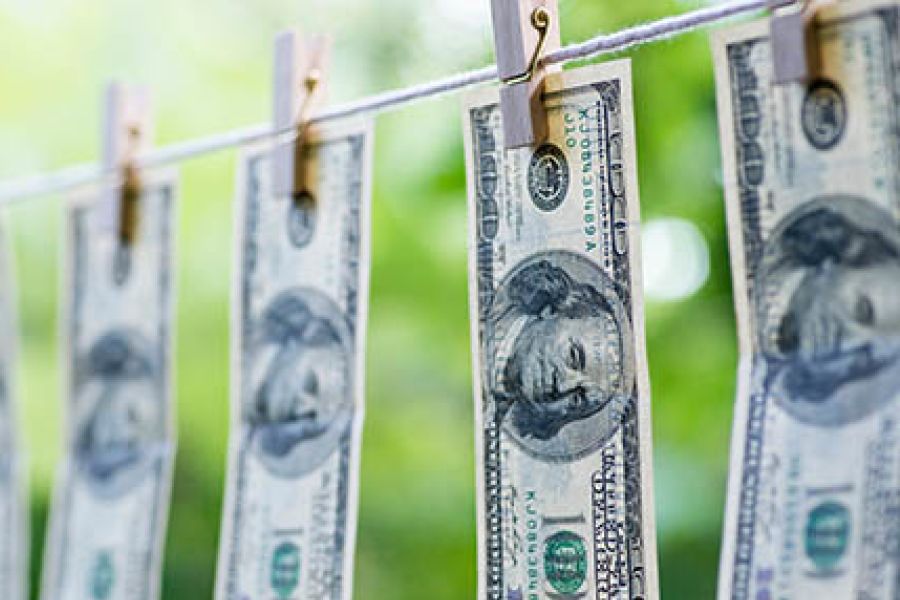Surveillance is common in many workplaces, yet companies monitoring employee activities may keep the practice under wraps. This may be a mistake, because when workers know they’re being watched, they’re generally less likely to be dishonest. For example, several surveys have shown that clearly visible security cameras discourage employees from stealing inventory. The challenge is to disclose enough information, without revealing too much. Frequently used controls and policies Honesty and trust are essential to a healthy, productive workplace. So you need employees to know you’re taking actions to prevent fraud. On the other hand, you don’t want to provide so many details about anti-fraud controls that thieves can work around them. Following are a few frequently employed anti-fraud policies and how you might communicate them to workers: Surprise audits....

Although most tax preparers are ethical and help ensure their clients file timely and accurate tax returns, a small percentage abuse their position of trust. They may, for example, engage in fraudulent activities that harm taxpayers. The IRS has warned about tax “promoters,” which the agency defines as entities that “undermine voluntary compliance by marketing improper methods to reduce the amount of taxes legally owed.” Such promoters can expose businesses and individuals to financial and legal risk. Wide variety of schemes Some shady tax preparers and promoters encourage clients to submit fraudulent returns and engage in aggressive tax-avoidance schemes. Some tax schemes that you should be aware of include: Employee Retention Tax Credit (ERTC) claims. In September, the IRS announced an immediate moratorium through at least the end...
Although some businesses now require employees to work full-time in the office, many others allow employees to work remotely one or more days a week. The popularity of remote positions can make attracting and retaining employees easier. However, some workers may be tempted to take on multiple remote jobs without informing their employers. In addition to affecting employee productivity, this can lead to leaks of intellectual property (IP) and proprietary knowledge to competitors. Or employees may use what they’ve learned working for you to run side businesses that directly compete with yours. Here’s how to minimize such risks. Provide solid oversight The same technology that makes it easy for companies to offer remote positions can also enable workers to juggle multiple jobs simultaneously. Some employees may feel they...
Occupational fraud risk isn’t necessarily shared evenly by all business sectors. Certain industries — for example, construction, real estate, manufacturing and transportation — are usually more vulnerable to employee theft, according to the Association of Certified Fraud Examiners (ACFE). Other industries may not have greater fraud exposure but face specific threats. Here are some industry-related risks and how businesses in these sectors can prevent fraud with strong internal controls. Construction Some types of fraud are more prevalent in the construction industry, particularly payroll and billing fraud. Segregation of accounting duties — having them performed by more than one employee — is critical to reducing both types. To prevent payroll fraud, have someone independent of your accounting department verify the names and pay rates on your payroll. If you...
Small businesses generally operate on principles of trust, particularly if several family members are involved. You might trust any employee to lock up the office at the end of the day or provide any colleague with administrative privileges to your website. After all, you know these people. But as businesses grow and hire new employees, it makes less sense to trust everyone implicitly. Even if your business remains small, some workers may be motivated to put their own financial interests ahead of your company’s. For this reason, businesses of every size need a conflict-of-interest policy that outlines ethical expectations and the consequences of violating them. An employer, not an employee, decision To understand the problem, it helps to look at a fictional example. Let’s say that Owen is...
When criminals profit from illicit activities, they usually need to “clean” or disguise the proceeds of their crimes. Money laundering disconnects illegally acquired funds from sources that include theft, drug trafficking and terrorism. This makes it harder for law enforcement to connect the dots, arrest the perpetrators and seize their money. Unfortunately, money launderers often use innocent small businesses to clean their dirty money. In some cases, businesses might be pressured to participate in money laundering. How can you keep your business safe from these criminal activities? 3 stages Money laundering generally involves three stages: Placement. Here, criminals introduce their illegally obtained funds into the economy, making them appear legitimate. Strategies could include separating large amounts into smaller ones and depositing them in multiple accounts, including offshore accounts. ...
When it comes to fraud, it may seem there’s nothing new under the sun. Unfortunately, fraud perpetrators are always finding novel ways to swindle businesses. Here are some recent scams — and how your business can protect against them. Influencer shakedowns Scam: So-called social media influencers ask restaurants and bars for complimentary meals and drinks in exchange for “free” publicity on platforms such as TikTok and Instagram. Some less-ethical influencers rack up big bills and fail to post anything about the businesses. Others accept money for “exposure packages” (to place a certain number of posts on various platforms) and then never deliver. Solution: If an influencer approaches you for a comp meal (or other free products or services), verify that the influencer has the number of followers claimed...
Have you ever wondered whether the photo or video you’re viewing, the audio you’re listening to or the article you’re reading is real? Artificial intelligence (AI) can make the line between authentic and inauthentic hard to determine. For fraud perpetrators, the ability to create deepfakes, voice clones or machine-generated communications can make their scams far more compelling — and effective. Although using AI for criminal purposes is a clear-cut abuse of the technology, it’s possible for well-intentioned businesses to violate the Federal Trade Commission (FTC) Act. Sec. 5 of the FTC Act, “Unfair or Deceptive Acts or Practices” prohibits any material representation, omission or practice that’s likely to mislead consumers under ordinary circumstances. Here’s how to reduce the risk of violations. Limiting the technology’s risk Using AI can...
Asset misappropriation schemes make up more than half of all occupational fraud schemes, according to the Association of Certified Fraud Examiners. It’s a broad category that includes everything from skimming cash to stealing inventory to paying “ghost” employees. One hotspot for asset misappropriation is the accounts receivables department, where dishonest staffers could potentially divert customer payments for their own use. If you don’t have strong internal controls for receivables, what are you waiting for? Lapping leads The most common form of receivables fraud is lapping, where perpetrators apply receipts from one account to cover misappropriations from another. For example, rather than credit Customer A’s account for its payment, a thief may pocket the funds and later post a payment from Customer B to A’s account, Customer C’s payment...
According to S&P Global, there have been at least 230 corporate bankruptcy filings thus far in 2023 (through early June). That’s more than twice the number of filings over the same period in 2022. Such growing numbers represent bad news for the companies involved, obviously, but also potentially for their vendors, customers and other business partners. Although bankruptcy can be a valid business tool, it can also enable dishonest business owners to cheat their creditors and then launch a new business. Do whatever you can to steer your business clear of these “phoenix” companies. Driven into the ground Phoenix companies earn their name because they rise from the ashes of failed companies, often trading on the goodwill of the original businesses. Here’s how a phoenix company scheme might...











